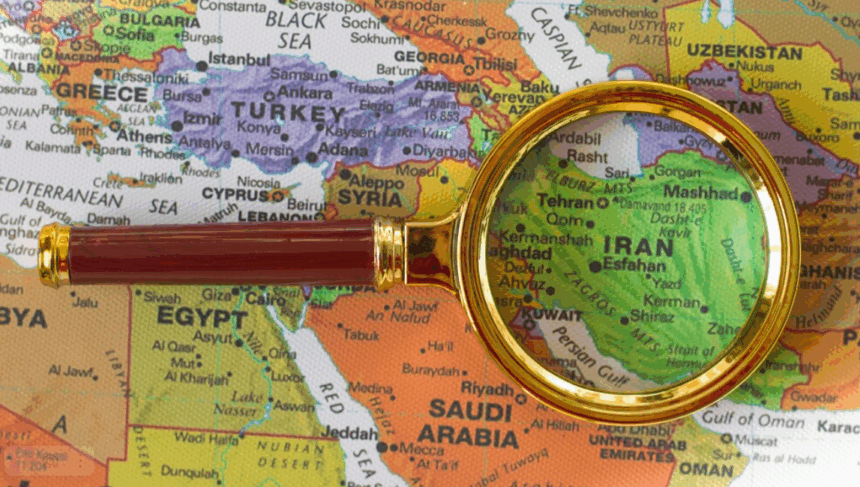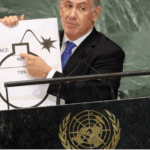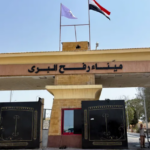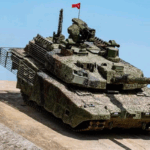In recent days, there has been a great deal of discussion in Turkey and on the international stage suggesting that, after neutralizing Iran as a threat, Israel’s next target could be Turkey. As we have explained earlier, the possibility of war or direct confrontation between Israel and Turkey cannot be entirely dismissed, given that Israel consistently pursues its Greater Israel project. However, such a scenario is unlikely in the short term and mid-term, especially during Erdoğan’s rule.
For decades, Iran has occupied center stage in Israel’s threat perception. Its nuclear ambitions, regional proxy networks, and openly hostile rhetoric have made it a convenient and, in many respects, legitimate focus of Israeli security policy. Iran’s role as the perennial adversary has not only shaped Israel’s military doctrine but has also served as the linchpin for securing steadfast military, financial, and diplomatic support from the United States and the broader Western alliance. But as the regional dynamics shift and the possibility of a significantly weakened—or even fragmented—Iran looms larger, Israel may find itself facing a new and far more complex challenge: the rise of Turkey as the dominant power in the region.
The Risk of Iran Becoming Another Syria or Iraq
If Iran’s government were to collapse, what would follow wouldn’t look too different from the chaos we saw in Iraq after 2003 or Syria after 2011: a fragmented country, torn by sectarian violence, lawless zones, and power vacuums filled by militias and regional powers. But Iran’s diverse ethnic makeup would add another layer to that instability—and it could have major geopolitical consequences. Northern Iran is home to tens of millions of ethnic Azeris with deep cultural, linguistic, and historical ties to Azerbaijan. In the turmoil that would follow a collapse, these communities—emboldened by the disorder and encouraged by outsiders—might push for more autonomy, or even seek to join Azerbaijan.
For Turkey, that would be a game-changing opportunity. Ankara has long dreamed of building stronger pan-Turkic ties that stretch from Anatolia through the Caucasus and into Central Asia. It’s already backing the idea of the Zangezur Corridor, a land route that would link Turkey directly to Azerbaijan and beyond. The breakup of Iran could hand Turkey an even bigger prize: a direct and expanded land corridor through a larger Azerbaijan, bypassing Iran’s current borders and opening up vast strategic and economic possibilities. This would significantly bolster Turkey’s geopolitical standing, allowing it to dominate key energy and trade routes, and extend its influence deep into Eurasia.
At the same time, if Turkey can finally resolve its long-running Kurdish issue—especially through its newly launched peace efforts—it could gain even more clout in shaping the region’s future after any Iranian collapse. The north of Iran is also home to a large Kurdish population, mostly Sunni, with strong cultural and ethnic ties to Kurds in Turkey, Iraq, and Syria. Often sidelined and politically fragmented, these communities could suddenly find themselves as major players in a post-collapse Iran.
If Turkey manages to address its Kurdish question at home, it would be in a much stronger position to work constructively with Kurdish groups across the border. That kind of influence could allow Turkey to act as a broker or key power in the middle of the regional chaos.
In this light, progress on the Kurdish issue wouldn’t just help Turkey stabilize internally—it would also give it the kind of strategic depth it needs to steer the shifts in power and ethnic realignments in northern Iran. That would further strengthen Turkey’s influence in a region already undergoing rapid change, and it would align perfectly with its pan-Turkic ambitions.
When the West’s Interests Don’t Match Israel’s
From the perspective of the U.S. and its allies, the rise of a stronger Turkey after Iran’s collapse might actually seem like a win. Turkey’s geographical location, population, military strength, and its linguistic, cultural, and religious connections with neighbouring countries and beyond position it as a key player in efforts to contain Russia in the Black Sea, the Caucasus, and Central Asia. And when it comes to checking China’s influence, Turkey offers the West a valuable partner right at the crossroads of Europe and Asia. A Turkey that controls access to Central Asia could play a big role in keeping both Moscow and Beijing in check.
If Turkey also manages to make peace at home with its Kurdish population, its influence in the region would only grow. Ending decades of internal strife would give Ankara the stability and confidence it needs to project power across the Middle East—especially in Syria. With a large Kurdish population along Syria’s northern border, Turkey’s ability to engage with Kurdish groups would give it real sway over Syria’s future.
That kind of influence, right next door to Israel, would make Turkey a key actor in the Levant. It would give Ankara the ability to shape outcomes in areas that Israel cares deeply about—border stability, alliances with Kurdish groups, and more. A stronger Turkey in Syria wouldn’t necessarily see eye to eye with Israel on everything.
What’s good for the West, though, doesn’t always work out for Israel. Israel’s security has never been just about its military might. It’s depended on the West’s dominance—led by the U.S.—to provide a strategic umbrella. But now, that dominance increasingly leans on Turkey’s growing role in the region. A Turkey emboldened by Iran’s collapse and extending its influence over Azeri areas would be a far more powerful player—and one whose ambitions might directly clash with Israel’s.
Israel’s recent past efforts to frame Turkey as the next big threat after Assad’s Syria and Iran haven’t really gained much traction in the West. Turkey’s NATO membership, its importance in containing Russia and China, and its strategic location have shielded it from that label. And Erdoğan’s two-track approach—slamming Israel in public while keeping trade and security ties going behind the scenes—has only added to the complexity.
So what we’re looking at is a stronger, more ambitious Turkey that could be a mixed blessing. The West might see it as useful, but for Israel it’s a source of both opportunity and risk. On one hand, Turkey’s strength could help Israel by keeping the region stable and keeping rival powers in check. But on the other hand, it would also limit Israel’s ability to pursue its larger ambitions—especially its dream of reshaping the region through its Greater Israel vision. A stronger Turkey, with influence across Syria, the Caucasus, and the Kurdish world, would make that much harder.
The China and Russia Factor: The Unexpected Twist
Turkey’s rise wouldn’t just worry Israel—it would also create big headaches for Moscow and Beijing. For Russia, a more powerful Turkey pushing into the Caucasus and Central Asia would chip away at its traditional sphere of influence and force it to rethink its strategy.
For China, the stakes are probably even higher. A Turkey that controls vital trade and energy corridors between Europe and Central Asia would throw a wrench into China’s Belt and Road Initiative. That project is central to Beijing’s plans to expand its power across Eurasia. A stronger Turkey managing alternative routes would disrupt that plan and force China to recalculate.
What’s more, Turkey’s military strength and its cultural ties to Turkic peoples—including Uyghurs—give the West a unique lever to push back against China’s rise. That could well lead Moscow and Beijing to quietly throw their support behind Iran’s survival, even in a weakened form, as a way to balance Turkey’s ambitions.
And here’s the irony: Israel’s push to weaken Iran could end up encouraging China and Russia to keep Iran afloat—making Israel’s strategic calculations even more complicated. It’s the kind of unintended consequence that’s all too common in a region as tangled as the Middle East.
Containment Over Collapse
All of this helps explain why Israel has always been more comfortable with containing Iran than with seeing it collapse entirely. A weak but functioning Iran gives Israel cover to stay on high alert, maintain strong ties with the West, and avoid the kind of chaos that could spin out of control. The Iranian threat keeps the flow of military, financial, and diplomatic support coming from the U.S. and its allies.
And let’s not forget: this rivalry with Israel has served Iran’s regime too. Despite all its internal troubles—economic hardship, protests, political dissent—Iran’s leadership has used hostility toward Israel as a rallying cry to shore up support at home and justify crackdowns.
But if Iran collapses, Israel could find itself facing a Turkey that’s stronger and harder to contain than it ever imagined.The real challenge is that Israel’s preferences might not line up with what the West decides to do. If Washington and its allies decide that breaking Iran apart is key to holding Russia and China in check, they may go ahead—whether Israel likes it or not. That would leave Israel dealing not just with the fall of its main enemy, but with the rise of a Turkey that’s bigger, bolder, and backed by the West.
In that kind of world, Israel’s best bet would have been to keep Iran contained. But if the West opts for dismantling Iran in the name of global dominance, Israel may have to rethink its entire approach to a region being reshaped as much by Turkey’s ambitions as by Iran’s fall.







